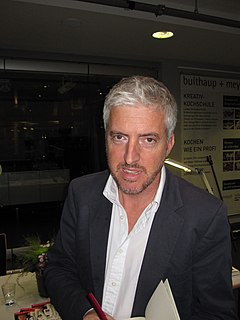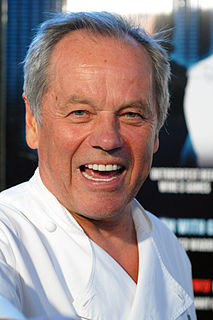A Quote by Cecelia Ahern
I think that most people go to bookshops and have no idea what they want to buy. Somehow the books sit there, almost magically willing people to pick them up. The right person for the right book. Its as though they know whose life they need to be a part of, how they can make a difference, how they can teach a lesson, put a smile on a face at just the right time.
Related Quotes
They know that people need witches; they need the unofficial people who understand the difference between right and wrong, and when right is wrong and when wrong is right. The world needs the people who work around the edges. They need the people who can deal with the little bumps and inconveniences. And little problems. After all, we are almost all human. Almost all of the time.
We know that every father has a personal responsibility to do right by their kids - to encourage them to turn off the video games and pick up a book; to teach them the difference between right and wrong; to show them through our own example the value in treating one another as we wish to be treated. And most of all, to play an active and engaged role in their lives.
Authors have a greater right than any copyright, though it is generally unacknowledged or disregarded. They have a right to the reader's civility. There are favorable hours for reading a book, as for writing it, and to these the author has a claim. Yet many people think that when they buy a book they buy with it the right to abuse the author.
I'm not naive, I know that bad things happen, but most people do the right thing most of the time. Most people wake up and they try to do what's right for their relationships, whether it's marriage or family. They try to do what's right for their job. They try to make a better world for those around them, and that's what I want to write about.
People never explain to you exactly what they think and feel and how their thoughts and feelings work, do they? They don't have time. Or the right words. But that's what books do. It's as though your daily life is a film in the cinema. It can be fun, looking at those pictures. But if you want to know what lies behind the flat screen you have to read a book. That explains it all.
I do what most women do. I meet someone and some of it's right, maybe he looks right, or has the right job, or the right background, and, instead of sitting back and waiting for him to reveal his other bits, I make them up. I decide how he thinks, how he's going to treat me, and, sure enough, every time I conclude that this time he's definitely my perfect man, and all of a sudden, well, not so suddenly perhaps, usually around six months after we've split up, I see that he wasn't the person I thought he was at all.
We need prizes as publishers... to focus attention on books, for people to know what to go look for. But often in my opinion and in probably everyone's opinion, the right books don't get chosen. Still we need books to be chosen even if they are not exactly the right ones, otherwise many people won't know what to read. As a publisher, I feel prizes are important for the publishing business. But as a writer, I think, writers shouldn't get too distracted by prizes because very often they don't go to the right person. You shouldn't take it too seriously if you haven't won a prize.
All religions are nothing but a science - or an art - to teach you how to die. And the only way to teach you how to die is to teach you how to live. They are not separate. If you know what right living is, you will know what right dying is. So the first thing, or the most fundamental thing is: how to live.
I had received Christ as my savior when I was a child, but I didn't know anything. I didn't have any knowledge. I didn't go to church. And I had a lot of problems, and I needed somebody to kind of help me along. And I think sometimes even people who want to serve God, if they have got so many problems that they don't think right and they don't act right and they don't behave right, they almost need somebody to take them by the hand and help lead them through the early years. And that's really what discipleship is. It's helping people.
Great actors are so easy to direct. It's like they're big 747s that you just have to move left and right, and I don't really need to direct. I need to put them in the right costume, with the right haircut, in the right location, and with the right actor to act with. And then my job is almost done, with a great script, obviously.






































